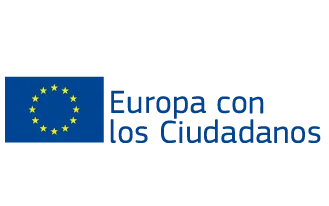Europe for Citizens
In-depth thinking and active citizens’ involvement with regards to European integration debates and the EU’s role in the world
The programme will carry out research, expert and public debates, thematic or area focused meetings and disseminate publications in various languages in order to contribute to a better understanding of the European project. From a clear Europeanist commitment, the programme will persistently bear in mind what kind of Europe do we want and how the citizens can contribute to this end

CIDOB’s Europe Programme aims to promote in-depth thinking and active citizens’ involvement with regards to European integration debates and the EU’s role in the world. Accordingly, the programme will carry out research, expert and public debates, thematic or area focused meetings and disseminate publications in various languages in order to contribute to a better understanding of the European project. From a clear Europeanist commitment, the programme will persistently bear in mind what kind of Europe do we want and how the citizens can contribute to this end.
The work programme suggested to Europe for Citizens will be structured along two main lines. The first one will tackle the current challenges to European integration and will provide substantive understanding of the trends of criticism vis-à-vis the European construction and possible ways forward for the current disintegration dynamics. This part of the programme will be aimed at exploring current disaffection by European citizens regarding the project of European integration, with a particular emphasis on developments after the crisis. It will be structured along a series of research and public activities on the consequences of the economic crisis and the European agenda of new left wing parties, the debates around Brexit and the rise of Euroscepticism in the UK, the disaffection of youth and their civic participation for a better Europe and the importance of education to contribute the citizens’ understanding of the Union’s history and diversity.
It will also put particular emphasis on the effects of the refugee crisis for Europe’s values and solidarity by understanding the dynamics of intra-EU mobility and the response of municipalities to the refugee crisis. These activities will foster inclusive participation of third-country residents in the EU to overcome stereotypes and exchange best practices about social inclusion and integration of migrants through civic participation. All activities of this line will take the different forms of Euroscepticism as a starting point in order to devise strategies to promote further engagement of citizens both at the national and European level. They will also analyse how the different crises affecting the continent can be used as an opportunity for deeper integration instead as an obstacle for the European project. In order to foster dialogue as a basis for a pro-European agenda, the activities foreseen will take into account the voices of experts, citizens and European stakeholders.
The second line of the programme will be aimed at increasing the European citizens’ awareness of the external crisis affecting Europe and how can Europe enhance its role at the global stage. In order to better comprehend the challenge that current global crisis can have on Europe, it is necessary to raise the citizens’ awareness of these crisis and the EU’s response to them. In this regard, CIDOB will develop a collaborative programme with other external partners and experts to debate the most crucial aspects of the international agenda. For instance, CIDOB’s research will lead activities on the links between conflict, health and development, climate change after COP21, the EU’s trade and investment strategies, the future of the Sustainable Development Goals, the role of the EU within the Atlantic Space, the threat of terrorism for European citizens and the relations of the EU with its neighbours, particularly with countries such as Russia and Algeria.


